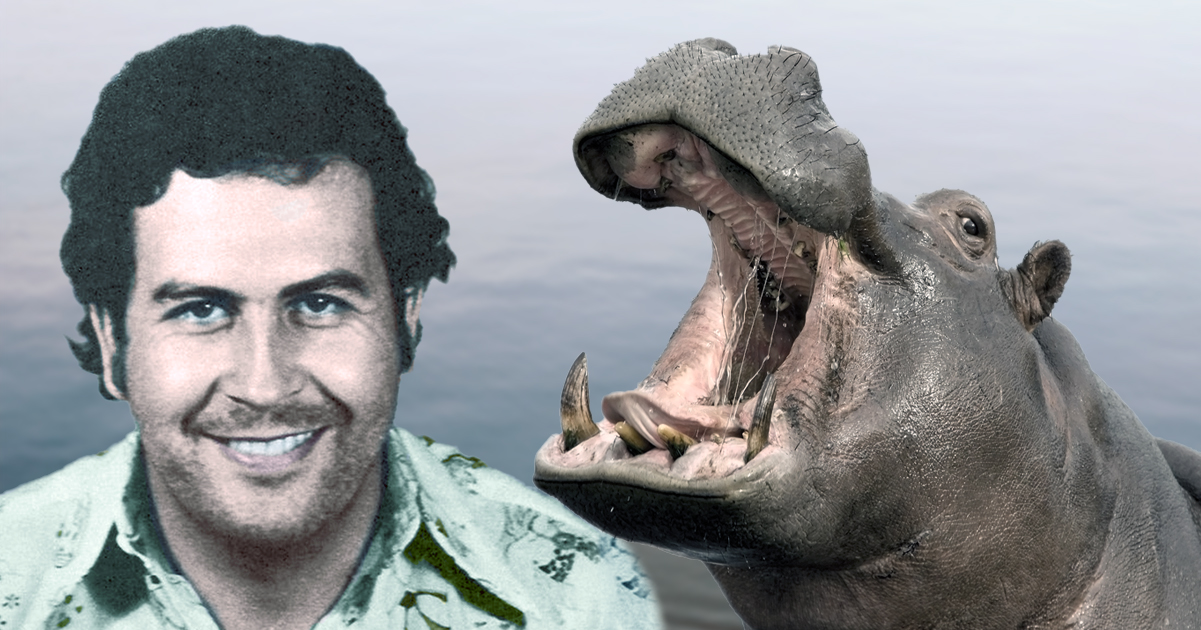Pablo Escobar’s hippos are causing a ruckus in Columbia. The man left an unusual legacy involving hippos that is causing problems many years after his demise. His huge former ranch, the Hacienda Nápoles, has been converted into a wildlife theme park and one of its biggest inhabitants are growing out of control. One rather distasteful result of this is the local water supply being affected (perhaps infected) by none other than hippo poop!
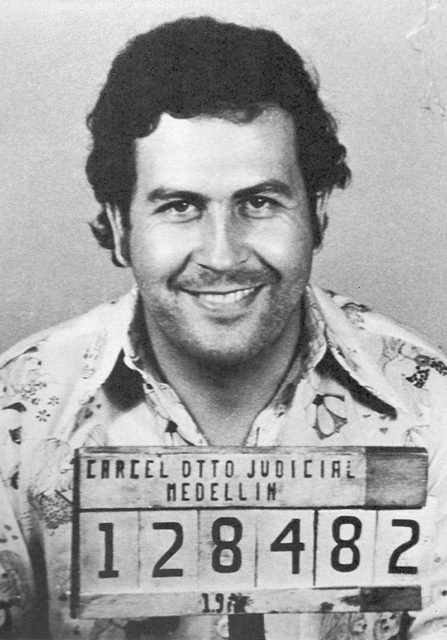
“Escobar’s $63-million ranch (Hacienda Nápoles) had its own airport and heliport,” writes the Los Angeles Times. “Man-made lakes. Life-size dinosaur statues. A fleet of collectible cars. A zoo filled with elephants, rhinos, giraffes, rare tropical birds and other exotic beasts.”
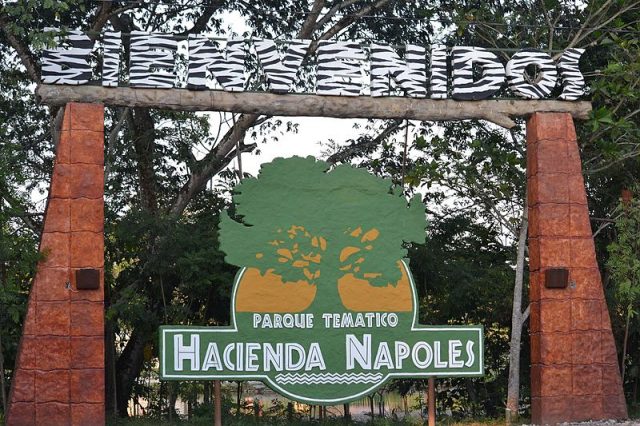
Those exotic beasts included 4 hippopotamuses. While it was straightforward snapping up the other animals, the hippos were a more complicated business. They were too large, too aggressive and too costly to shift. So they stayed put, and over a quarter of a century their population grew. And grew…
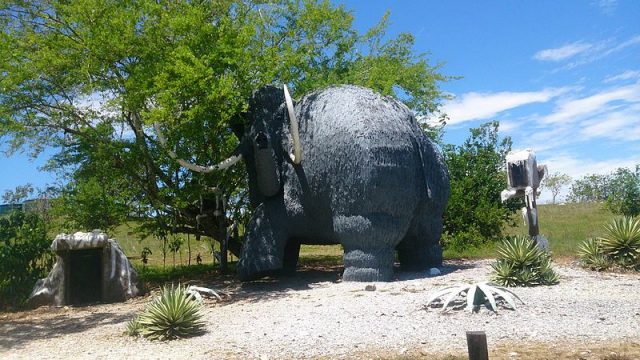
Spreading into areas such as the Magdalena River, they are believed to have roamed nearly 90 miles from home. National Geographic refers to ecologist Jonathan B. Shurin, whose work is part of a study funded by the organization. According to this, “estimates indicate there may be a total population between 80 and 100… That’s at least a couple dozen higher than estimates just two years ago. Given that there were four in 1993, the population appears to be growing exponentially”.
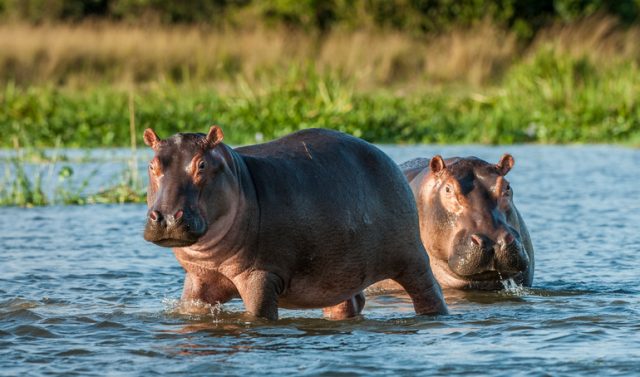
The findings have been published by the Ecological Society of America. Of particular interest are the creatures’ colossal comfort breaks! Hippos are known for doing their business in open water, and that has serious implications for the local environment.
Shurin and his colleagues spent a couple of years examining and contrasting hippo-happy water with its poop-free counterparts. “They found that cyanobacteria, also known as blue-green algae, was more prevalent in hippo-filled lakes,” says Smithsonian.com, “likely because the nutrients in mass quantities of hippo poop fertilize bacteria.” From this it’s possible that algae will ramp up, with “harmful algal blooms” being created.
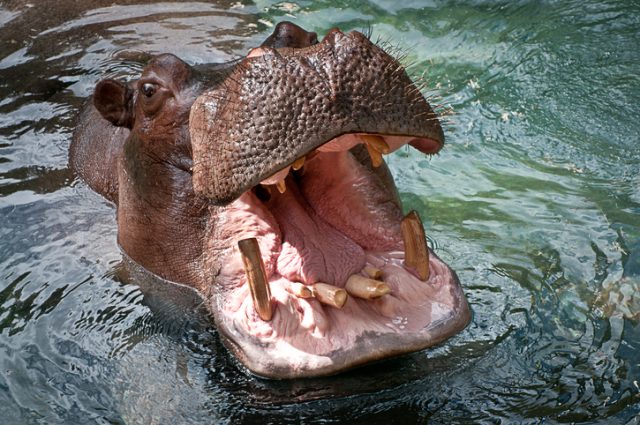
Also hippos aren’t the daintiest of animals. They alter an environment over time by simply moving around in the first place. Escobar’s super pets can reach 16 feet in length and are 5 feet high. That’s not even taking into account a body mass of several tons!
Much like their former owner perhaps, the hippos aren’t people friendly. “You know how people say about wild animals ‘if you don’t bother them, they won’t bother you,’ and ‘they’re more afraid of you than you are of them’?” says Shurin, quoted by the LA Times. “Neither is true of hippos.”
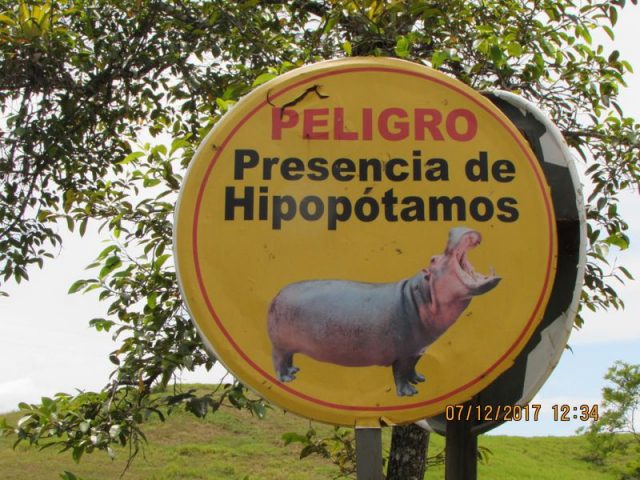
They reportedly cause up to approximately 500 fatalities per year in Africa. Throw in the sheer expense of transporting them and a jumbo sized headache emerges. “One juvenile hippo was successfully moved to a Colombian zoo in September 2018, but it cost 15 million pesos (about $4,500 USD)” writes National Geographic.
Other voices claim it could be good that things panned out this way, believing it’s too soon to make a call. “Without direct evidence that the animals are doing harm, some ecologists argue that there’s no reason to cull or relocate them,” National Geographic notes. “Indeed, the hippos could fill in for species that humans pushed to extinction thousands of years ago—an idea known as rewilding.”
It isn’t necessarily a bad deal for Colombian lakes to be flooded with the poop of Pablo Escobar’s hippos. The stuff does contain nutrients after all, and the creatures spread seeds from what they consumed across a wide area. So what benefits might this stinker of a situation bring? “In the case of the hippo, these might include: funneling nutrients from land to water; altering the structure of wetlands; and keeping grassy plants in check by eating them.” (National Geographic)
Related Wacky Article: Fidel Castro’s Crocodile Wreaks Havoc at Swedish Aquarium Party
The scenario is unusual and authorities are keeping a close eye on how it all develops. Will Pablo Escobar’s hippos carry on making a splash? Or is this simply the world’s worst game of Hungry Hungry Hippos…?
